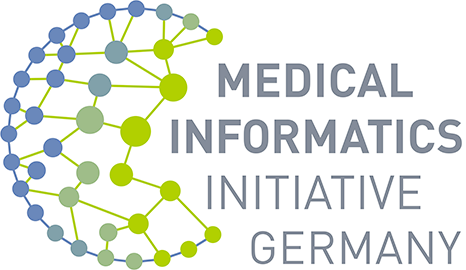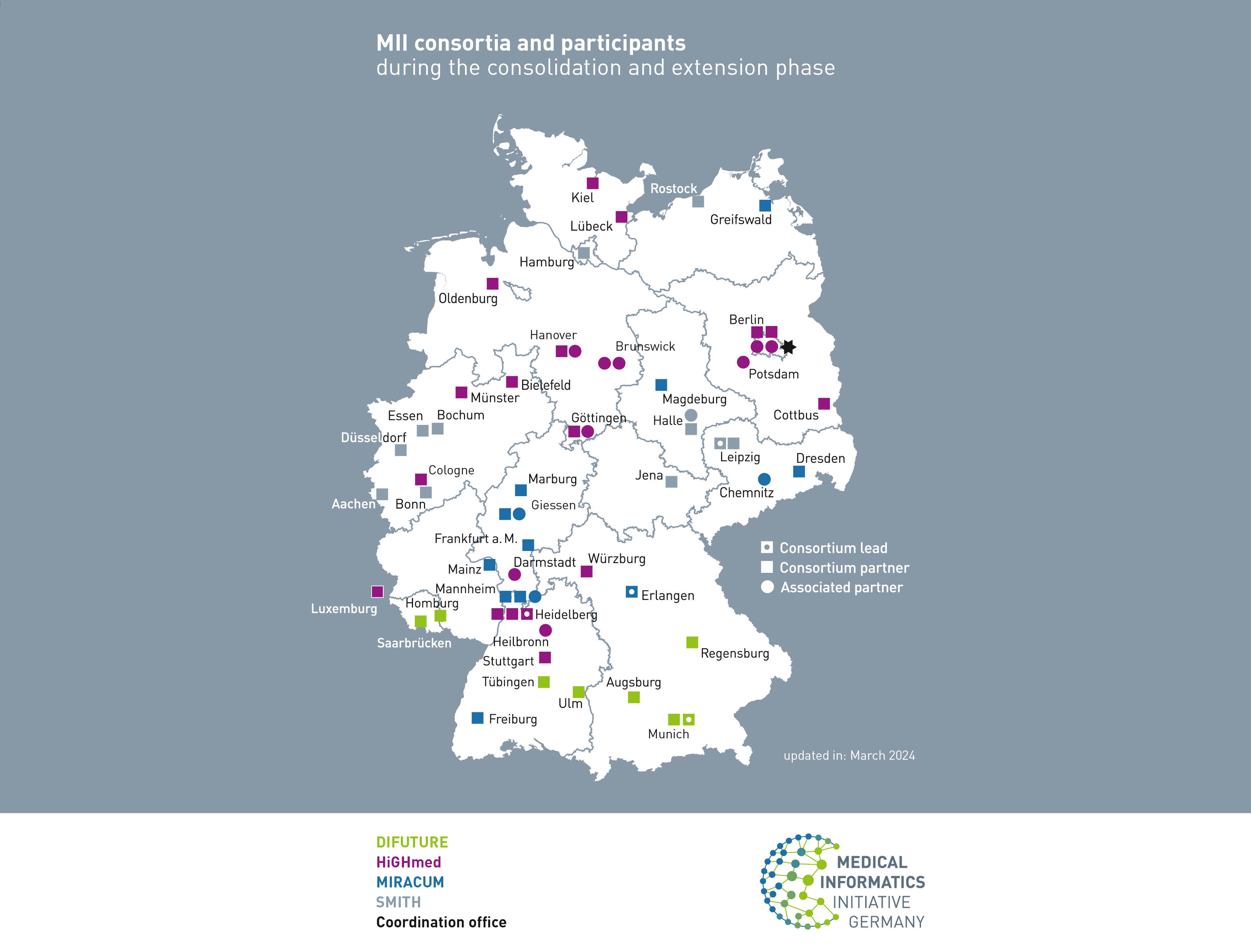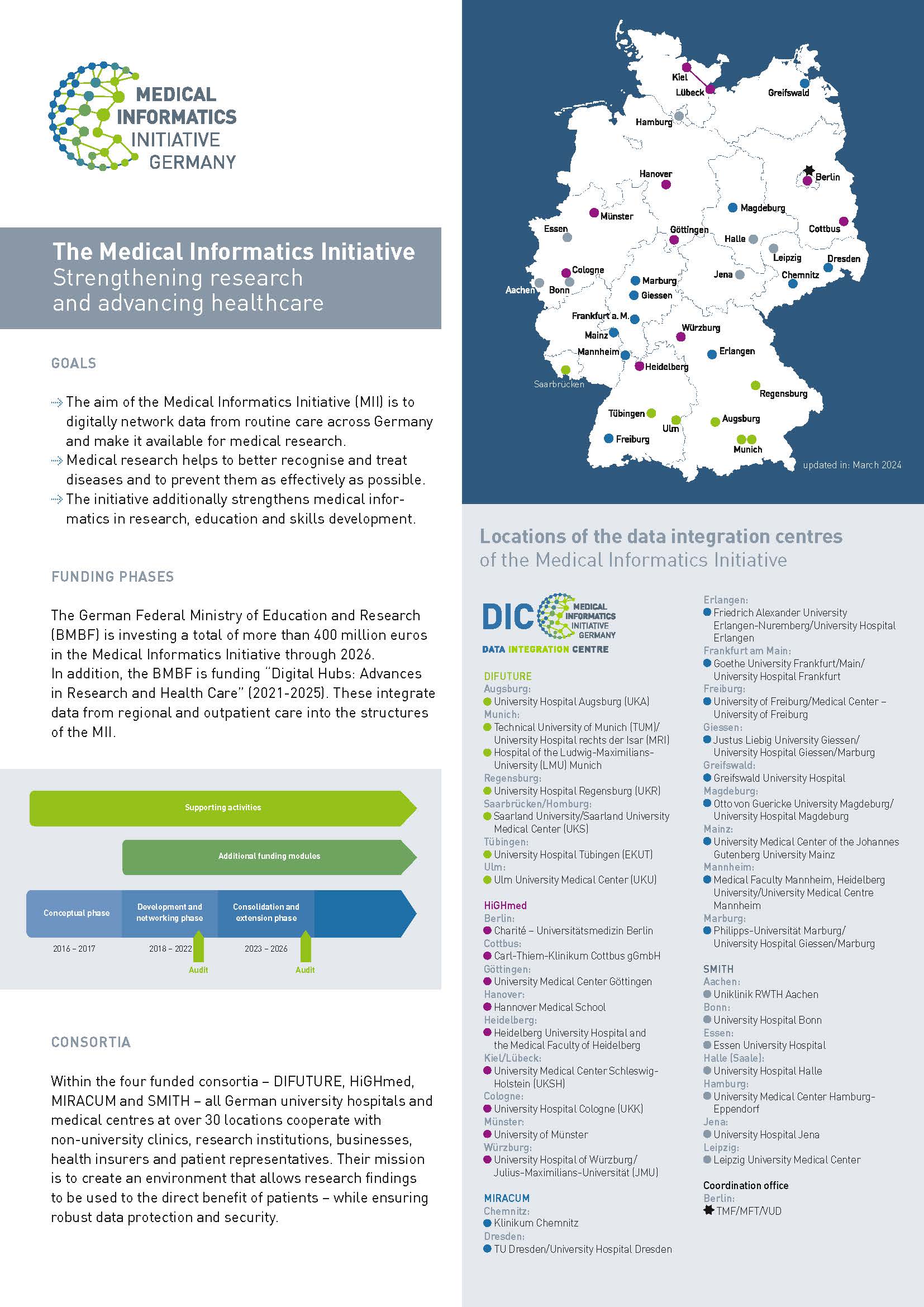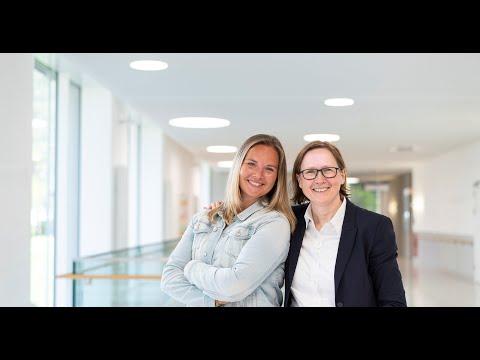Mission
The digitisation of medicine is creating new opportunities for patient care and research; BMBF launched its medical informatics initiative to make the most of this transformation. In the initiative’s first phase, university hospitals and partner organisations established and linked data integration centres. These centres allow research and healthcare data to be aggregated and integrated across multiple entities and sites. At the same time, innovative IT solutions for specific medical applications will be developed to demonstrate the benefits of high-tech digital healthcare services and infrastructures.
Participating university hospitals and their partners have formed consortia. These are tasked with developing strategies for shared data use and exchange. They subsequently establish the data integration centres, and create IT solutions for concrete use cases.
Structure and actors
The BMBF is funding the consortia, data integration centres and the cross-consortia use cases with a total of more than 400 million euros in the establishment and networking phase (2018 to 2022) and the currently ongoing consolidation and extension phase (2023 to 2026).
These activities are coordinated by a national steering committee (NSG), to ensure the interoperability of IT systems and data integration centres between the consortia. In addition, a dedicated coordination office supports cross-consortia collaboration. This office is managed jointly by TMF – Technology, Methods and Infrastructure for Networked Medical Research, MFT (Medizinischer Fakultätentag – an association of German medical faculties), and VUD (Verband der Universtitätsklinika Deutschlands, which represents 33 university hospitals in Germany).
Organisational structure and actors of the Medical Informatics Initiative
Download information leaflets:
Fact Sheet (03/2025) [PDF | 300 KB]
Imageflyer of the Medical Informatics Initiative Germany (08/2021) [PDF | 296 KB]
More information:
To the frequently asked questions (FAQ)
Interview film with patients, doctors and researchers:
Vision
The aim of the medical informatics initiative is to ensure that, in future, each doctor, patient and researcher has access to the information they require – while simultaneously allowing individuals to maintain control over their personal data.
This will lead to more precise diagnostics, and better treatment decisions. It will yield new insights for research and medicine. And it will improve patient care and help combat diseases more effectively. Specifically, the initiative is about harnessing the flood of data generated every single day in healthcare and research environments – to the benefit of individual patients, to better understand illnesses, and to tailor treatments to the needs of the individual.
The goal is to establish a way to exchange research and care data across university hospitals. If it proves successful – with the help of funding from BMBF – it will open up entirely new horizons. The solutions that will be developed are expected to create added value across the health system.
“Digitisation can make personalised medicine a reality. But we have to make the switch now. Digital products and applications, not only in healthcare but also in medical research, are generating more and more data, and at an accelerating pace. These data must be aggregated and analysed – then they can help us to better understand and treat diseases. Our goal is a learning, digital and connected health system, where the right information is available at the right time, to the right person. With the launch of the medical informatics initiative, we’ve taken a major step in the right direction.”
Federal Minister of Education and Research Johanna Wanka | BMBF press release from 12 June 2017




